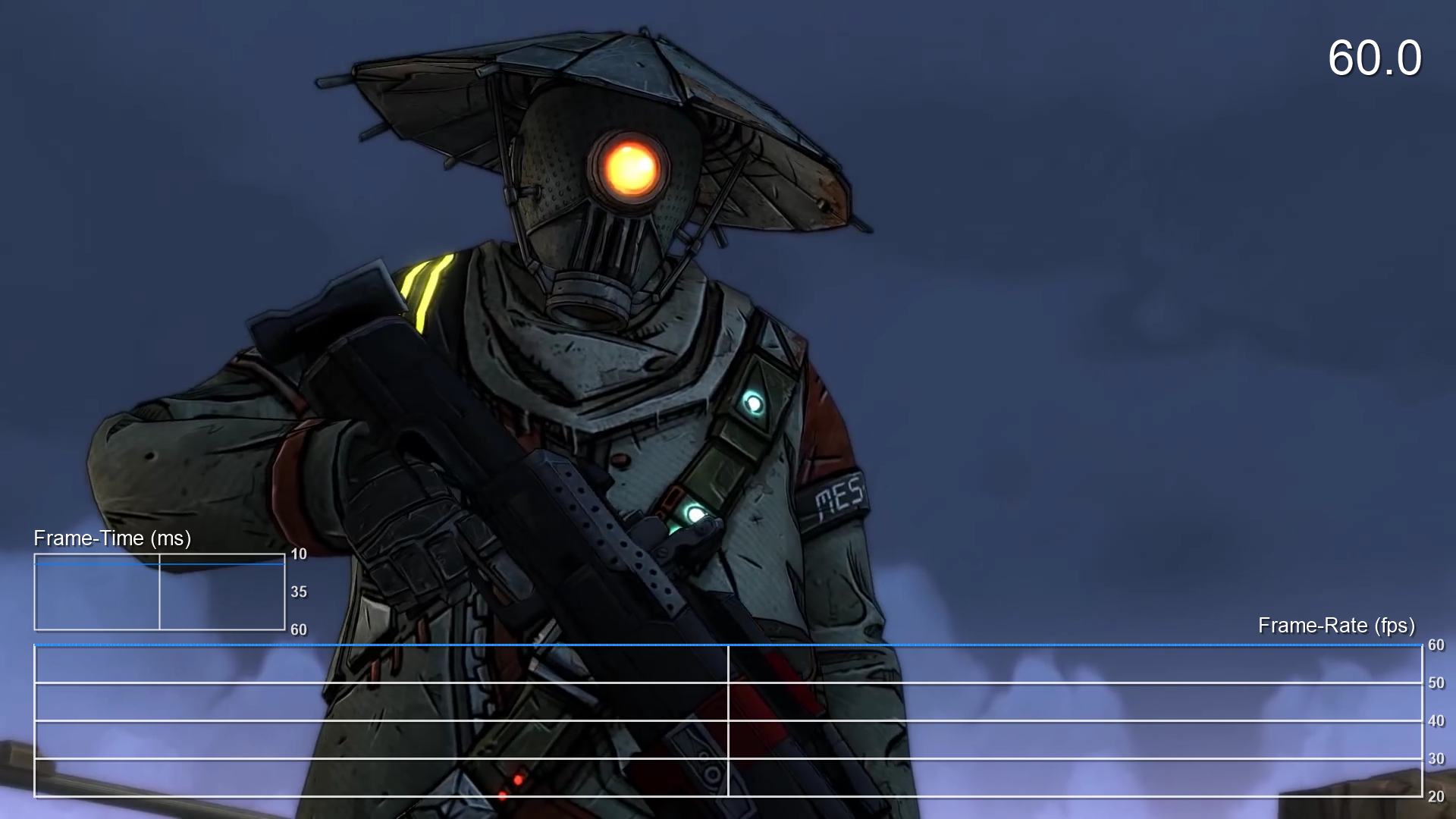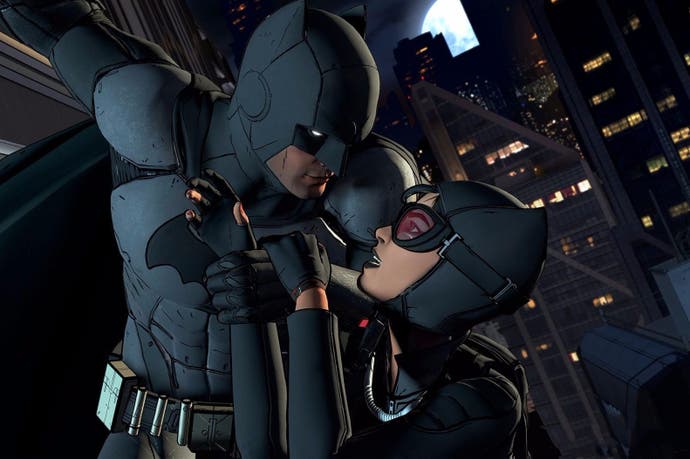Telltale Batman has tech issues on consoles too
Puzzlingly low resolutions and wobbly frame-rates take the sheen of a high-profile release.
Since its inception in 2004, Telltale Games has continued to release narrative-driven adventure games focused on choice and consequence. Before you even begin playing, however, you're asked to make one of the most important choices - which version to play. With upwards of nine unique ports available for many of its games, this is no small task. Telltale Games has a troubling history of releasing games with serious bugs and performance problems, and picking the wrong platform can lead to a subpar experience. Now, with the arrival of Batman - The Telltale Series, we might finally have reached the point where the best choice is not to play at all until the developer comprehensively addresses some serious issues.
It started with reports on the PC version - it was launched in a problematic state with many users unable to play the game at all, leading to frustration from the community. It was patched quickly, but many users are still left unsatisfied, leaving us to look towards the consoles, where there are many different releases to choose from. Batman is available on PS4, PS3, Xbox 360, and Xbox One. We've tested the game on Xbox One and PlayStation 4 at this point and the results are worse than expected based on our experiences with the company's prior releases.
The primary issues centre on poor image quality and often terrible performance. On PlayStation 4, Telltale has opted for a 900p presentation, while the Xbox One version operates at 720p. We've seen this split before, typically in high performance titles such as Star Wars Battlefront, but it's surprising to see this in a title with considerably lower visual aspirations. Strictly speaking, the actual resolution is lower. The game is letterboxed, effectively lowering the resolution to 1600x766 on PS4 and 1280x614 on Xbox One. With these results, Telltale has set a new record for the lowest resolution in a shipping game on PlayStation 4 to date, and it would be true of Xbox One as well if not for Ark: Survival Evolved, which is ever so slightly lower.
The situation is made worse by the lack of effective anti-aliasing on PlayStation 4. Edges are jagged and aliased to a degree we do not often see on consoles - this is not a clean looking game. While Xbox One renders at an even lower resolution, the version on Microsoft's console does at least appear to use some sort of post-process anti-aliasing, resulting in a softer but cleaner presentation. Still, the results are remarkably poor when considering that previous Telltale adventures delivered a full 1080p on console.
The most serious issue here is frame-rate - despite the low resolution in use, performance is remarkably low and inconsistent throughout the experience. Both versions operate with an uncapped frame-rate and a double buffer v-sync configuration. You can expect results anywhere from 60 frames per second all the way down to 15 and this can happen within a single scene, resulting in a remarkably choppy experience.
To an extent, it's not a game-breaker. Telltale titles are not action games and the unstable frame-rate has little impact on the feel of the game as such, but that doesn't mean this isn't a problem. This type of experience is designed to tell a story and a smooth presentation is key in achieving this. Most people wouldn't tolerate such issues while watching a film at a local theatre and they shouldn't tolerate it here either. When each pan of the camera is plagued with judder and action scenes are compromised by often drastic change in frame-rate, the experience loses much of its lustre.

What's frustrating here is that Batman is the first game to make use of an updated version of the Telltale Tool, the engine and toolset used to create their games. We noticed the inclusion of more advanced post-processing, shadow maps, improved animation, higher quality models, and more detailed texture work but it ultimately winds up looking remarkably similar to past experiences. While something like Tales from the Borderlands may be lacking these features, it does offer a generally stable 1080p 60 frames per second experience on console.
Of course, as noted above, one of the issues with Telltale's approach to multiplatform development lies in its inconsistency on different platforms. Sure, The Wolf Among Us was great on the PC, but if you were playing on a PS Vita, your experience would be filled with severe slowdown, loading, and hitching around every corner. You could generally count on finding a decent port, but this time it seems that we have a distinct lack of options.
That's not even touching on the save game issues many have faced in the past. These games are based on the choices you make and one would expect the save system to work as expected but many of us have lost save data when moving from one episode to the next, with no way to restore our progress. Telltale has yet to address this in the affected games, and there's been little feedback from the developer on addressing key concerns like this. Bottom line: when there are communication issues like this, it casts doubt on the extent to which we can expect to see a troubled release like Batman see the genuine improvements the title desperately needs.
In the past, Telltale was a smaller studio working on a tight schedule and a limited budget, but its success has allowed the studio to grow rapidly while working on some of the hottest franchises in the entertainment business. With this success, we would hope to see growth and improvement happen on the backend. Will Marvel be happy if Telltale's next series, based on one of its properties, suffers from these issues? We think not, but hopefully highlighting these issues now will result in a renewed approach to QA going forward. As things stand, we put our concerns to Telltale two days ago and have yet to receive a response. Should we receive a reply, we'll update this piece.


